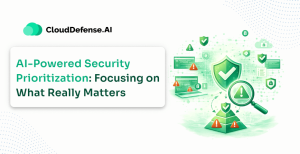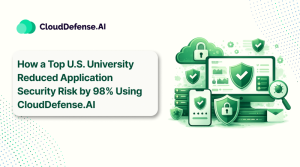In a major security blunder, AU10TIX, an Israeli company that verifies user identities for big names like TikTok, Uber, and X (formerly Twitter), left its administrative credentials exposed online for over a year. This slip-up potentially put millions of users’ personal information at risk, including sensitive data like facial images and driver’s licenses.
The breach, first reported by 404 Media, raises serious questions about how our personal data is handled when we’re asked to verify our identities online. With more and more platforms requiring users to upload government IDs or selfies, this incident is a wake-up call for both companies and consumers alike.
Background on AU10TIX
AU10TIX, founded in 2002 and based in Hod HaSharon, Israel, is a leading provider of identity verification services. The company offers a range of solutions, including age verification, address verification, biometric verification, and even deepfake detection. They’re the ones working behind the scenes when apps like TikTok or Uber ask you to snap a selfie or upload your driver’s license.
The Breach: A Year-Long Open Door
So, what exactly happened here? AU10TIX, the company responsible for verifying our identities when we sign up for services like TikTok or Uber, messed up big time. They left a set of admin credentials – basically, the keys to their digital network – exposed online for anyone to find.
These weren’t just any old login details. We’re talking about access to a logging platform that contained links to people’s identity documents and verification results. That means names, dates of birth, nationalities, ID numbers, and even images of the documents themselves were potentially up for grabs.
The timeline of the breach is pretty alarming:
- December 2022: The credentials were likely first compromised, scooped up by some kind of malware.
- March 2023: These same credentials popped up on a Telegram channel. Yes, a public messaging app.
- June 2024: Incredibly, the credentials were still working when cybersecurity experts checked.
The folks at 404 Media, with help from a cybersecurity firm called spiderSilk, stumbled upon this security nightmare. Mossab Hussein, the chief security officer at spiderSilk, was the first to spot the exposed credentials. He raised the alarm, pointing out that AU10TIX had failed to implement even basic security measures to protect users’ identities and confidential documents.
What’s really concerning is that these credentials weren’t just sitting there harmlessly. There’s evidence suggesting that bad actors might have actually gotten their hands on them and put them to use. That’s not just a potential threat – it’s a real-world problem that could affect millions of people who’ve used these popular apps and services.
Response from AU10TIX and Affected Companies
When 404 Media first reached out to AU10TIX about the breach, the company’s initial response was pretty dismissive. They claimed the incident happened over 18 months ago and that the compromised credentials were “promptly rescinded” after being illegally accessed. However, this didn’t quite add up with the timeline uncovered by 404 Media, as exposed credentials were still functional in the current month.
After being pressed further, AU10TIX admitted that data was “potentially accessible” but insisted they found “no evidence that such data has been exploited.” The company says they’ve notified impacted customers and are now ditching their current system for a new one with boosted-up security.
As for the companies using AU10TIX’s services, their responses have been mixed. Upwork, for instance, was quick to distance itself, saying they’ve “been working with a different service provider for some time now.”
X (formerly Twitter) is in a trickier spot. They just partnered with AU10TIX in September to verify premium users with government IDs. Talk about bad timing. They haven’t said much about the situation, which is pretty telling.
Fiverr and Coinbase, on the other hand, are playing it cool. They claim they’re not aware of any data exposure but are still working with AU10TIX. It’s a risky stance, considering the potential fallout if user data has indeed been compromised.
Potential Consequences
Think about it. Your name, birth date, nationality, ID number, and even pictures of your driver’s license or passport – all potentially up for grabs. That’s identity theft central right there. Someone could take that info and open credit cards, apply for loans, or even commit crimes in your name.
And it’s not just about financial fraud. Those facial images AU10TIX uses for verification? In the wrong hands, they could be used for all sorts of nasty stuff, from stalking to creating deepfakes.
What’s really frustrating is that more and more apps and websites are asking us to jump through these ID verification hoops. We’re told it’s for our own safety, to keep the bad guys out. But who’s keeping our data safe once we hand it over?
This AU10TIX incident shows just how risky this trend can be. We’re being asked to trust these companies with our most sensitive info, and it turns out some of them can’t even keep their own login details secure.
The bottom line? This breach could have serious, real-world consequences for a lot of people. And it’s a reminder that in our digital world, our identities are only as secure as the weakest link in the chain.
Broader Implications
This AU10TIX mess is just the latest in a long line of data breaches, but it’s particularly worrying, given the kind of information they handle.
The trend of social networks and apps demanding more and more personal info isn’t slowing down. Just look at X (Twitter)—they started asking premium users for government IDs in 2024, well after this AU10TIX problem began. It’s a reminder that our data is constantly at risk, even when we’re just trying to use a service we’ve paid for.
What’s really frustrating is how common these breaches are becoming. It seems like every other week, we’re hearing about passwords leaked on Telegram or personal info dumped on the dark web. Remember the AT&T leak back in March? Over 73 million passwords were exposed. LoanDepot and the US Department of Defense have had similar issues this year.
The reality is, as more platforms push for stricter identity checks, they’re creating bigger targets for hackers. It’s a double-edged sword – these measures are supposed to make platforms safer and more trustworthy, but they’re also putting our personal information at greater risk.
Could This Breach Have Been Avoided?
Yes, this AU10TIX breach was totally avoidable. We’re not talking about some high-tech hack here. This was basic stuff that any company dealing with sensitive data should have nailed down.
First off, the fact that admin credentials were exposed for over a year is a big red flag. That’s not just a small oversight – it’s a major security lapse. Basic practices like regularly rotating passwords and using multi-factor authentication could have made a huge difference here.
And let’s talk about response time. The credentials were apparently scooped up by malware in December 2022 and shared on Telegram in March 2023. But AU10TIX claims they only found out recently? That’s a huge gap. Any decent security system should have flagged unauthorized access attempts way earlier.
But beyond these basics, there are more advanced tools that companies dealing with sensitive data should really be using. Take cloud-native application protection platforms (CNAPPs), for example. These tools give a much clearer picture of what’s happening across a company’s network.
CloudDefense.AI is one such CNAPP that includes features like Data Security Posture Management (DSPM). This isn’t just about spotting threats – it’s about understanding your entire data landscape and how it’s being protected. With real-time insights, companies can prioritize their security efforts where they’re needed most.
What’s particularly useful about these kinds of solutions is how they pull together data from all over the place. It’s not just about looking at one system or another—it’s about seeing the big picture. This comprehensive view can help catch vulnerabilities that might slip through the cracks of more traditional security setups.
In AU10TIX’s case, a tool like this could have potentially flagged those exposed admin credentials long before they became a problem. It might have noticed unusual access patterns or identified that sensitive data was potentially at risk.
Final Words
The takeaway here isn’t just about AU10TIX, though. It’s an alert alarm for any company handling personal data. In today’s world, basic security measures just aren’t enough anymore. Companies need to be proactive, using advanced tools to spot and fix vulnerabilities before they turn into full-blown security nightmares.
And it’s clear that current security measures are woefully inadequate. Without immediate and drastic improvements in how companies safeguard our data, we’re all walking targets for identity theft and fraud. The AU10TIX breach maybe today’s headline, but unless profound changes are made, it’s just a preview of the digital disasters to come.







